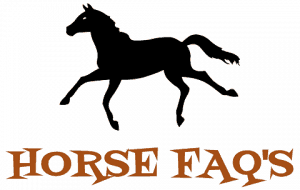Horse ownership can be a fulfilling and rewarding experience, but it is important to consider the costs and responsibilities that come with it.
The initial cost of purchasing a horse can vary greatly depending on factors such as breed, age, and training level.
Additionally, the ongoing expenses of caring for a horse can add up quickly, including feed, boarding, and veterinary care.
It is crucial for prospective horse owners to carefully budget and plan for these expenses to ensure they can provide their horse with the best possible care.
While the financial commitment of owning a horse can be daunting, there are also options for affording a horse.
Leasing a horse can be a more affordable alternative to purchasing, allowing individuals to enjoy the benefits of horse ownership without the long-term commitment.
Additionally, offering a mare for breeding can provide a source of income to offset some of the costs of owning a horse.
Ultimately, with proper planning and budgeting, horse ownership can be a fulfilling and enriching experience for both horse and owner.
Cost of Buying
The cost of buying a horse can vary greatly, with the price tag depending on the breed, age, and training of the horse. An average recreational horse can cost around $3,000, while a Quarter Horse may cost slightly more at $3,500.
For those who are willing to spend more, a Friesian can cost as much as $25,000, and a Gypsy Vanner can be purchased for around $10,000. However, it is important to note that these are just the initial costs of buying a horse.
In addition to the purchase price, there are also training expenses to consider, especially if the horse is not already trained or requires additional training. Moreover, unexpected costs such as veterinary bills and emergency care can add up quickly and should be factored into the overall cost of horse ownership.
Therefore, it is crucial to have a well-planned budget for horse ownership to avoid financial surprises down the road.
Cost of Keeping
Feeding expenses for a horse depend on factors such as size, workload, health, and location. Horses require a diet consisting of hay or pasture grass, supplemented with grains and minerals. The cost of hay varies based on location and availability, while the amount of grain and supplements needed depends on the horse’s workload and health. Some horses may also require special diets or supplements for medical reasons. It is important to budget for horse feed as it can cost several hundred dollars per month.
Boarding costs vary based on the region and can range from $200 to $2000 per month. Boarding options include full care, partial care, and self-care. Full care includes feeding, stall cleaning, turnout, and some basic medical care, while partial care may include some of these services but require the owner to provide feed and bedding. Self-care requires the owner to provide all care for the horse.
Additionally, some facilities may offer amenities such as indoor arenas, trails, or on-site trainers, which can affect the cost of boarding. It is important to research and visit potential boarding facilities to ensure they meet the needs of both the owner and horse.
Affording a Horse
To afford a horse, individuals can consider leasing arrangements or negotiating discounted boarding rates. Leasing options include full lease, partial/half lease, and show lease. A full lease involves the lessee paying all expenses related to the horse, including boarding, veterinary care, and feed. In exchange, the lessee has full access to the horse for riding and showing.
Partial/half lease involves the lessee paying a portion of the expenses related to the horse, usually in exchange for riding or caring for the horse for a set number of days per week. Show lease involves the lessee paying a fee to the owner for the use of the horse in competitions.
Long-term financial planning is essential for horse ownership, and this includes exploring all options for affording a horse. Negotiating discounted boarding rates can be an effective way to reduce expenses. Some boarding facilities offer discounts for multiple horses or long-term contracts.
Additionally, offering a mare for breeding lease can generate additional income. Horse ownership is a significant financial commitment, and proper planning can make it achievable for those willing to put in the effort.
Frequently Asked Questions
What breeds of horses are best suited for beginner riders?
Navigating the world of horse breeds can be overwhelming for beginner riders. Some breeds that are known for their calm temperament and ease of training include the American Quarter Horse, the Morgan, and the Tennessee Walking Horse.
How long do horses typically live and what are common health issues they may face?
The average lifespan of horses is 25-30 years. Common health issues include colic, lameness, respiratory problems, and dental issues. Regular veterinary care, proper nutrition, and exercise can help prevent and manage these issues.
Can horses be trained for specific purposes, such as therapy or police work?
Training methods for horses can be successful for specific purposes such as therapy or police work. One study found that horses trained with positive reinforcement had a higher success rate than those trained with traditional methods.
What kind of insurance is available for horse owners and what does it cover?
Horse insurance is available with coverage options that include equine liability insurance and mortality insurance. Equine liability insurance covers injuries or damages caused by horses, while mortality insurance covers the death of the animal.
Are there any legal requirements for owning a horse, such as permits or licenses?
Legal requirements for horse ownership vary by state, but most do not require permits or licenses. However, owners should be aware of local zoning laws and liability insurance requirements. These additional costs should be factored into the overall costs of horse ownership.

